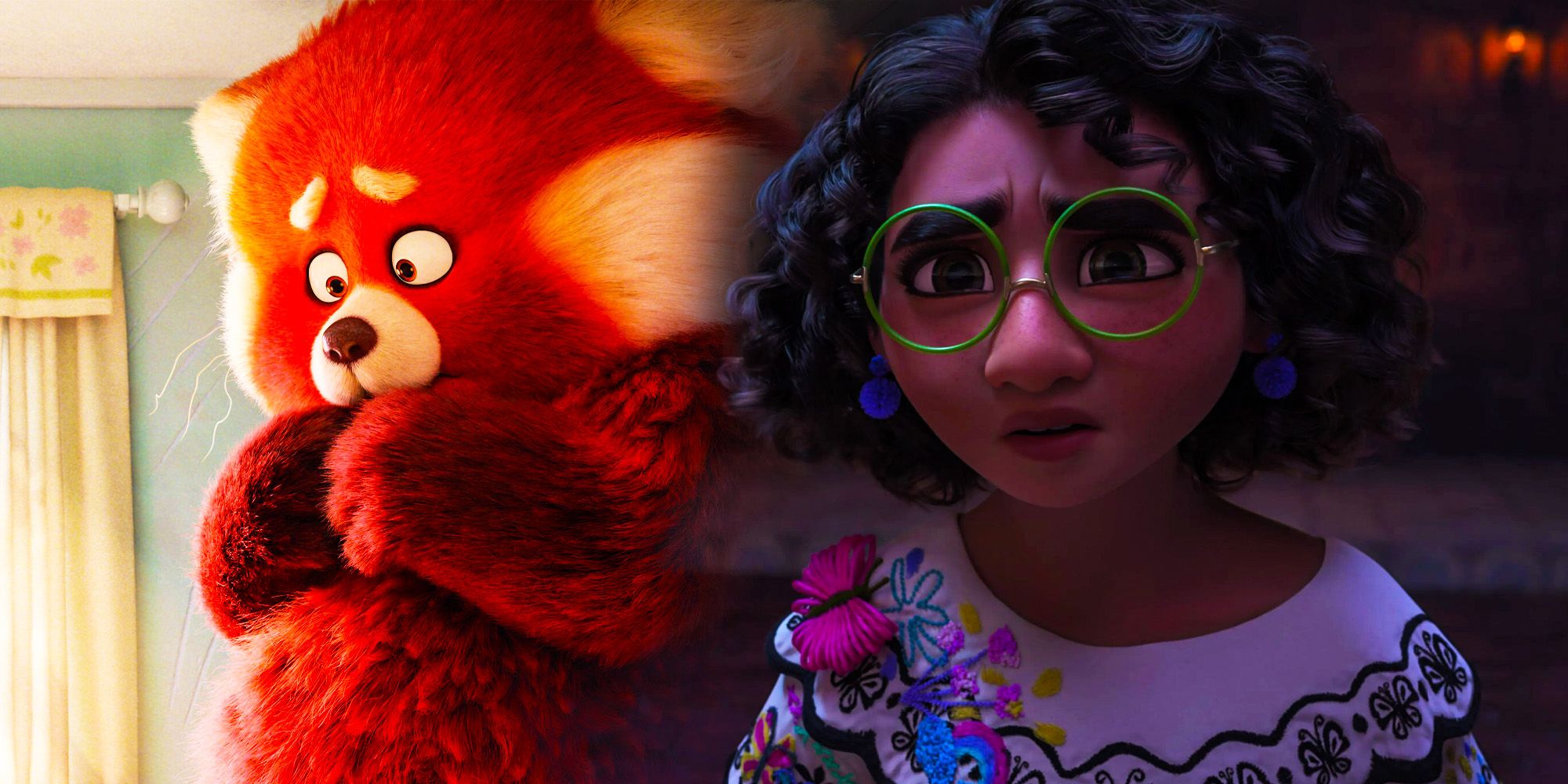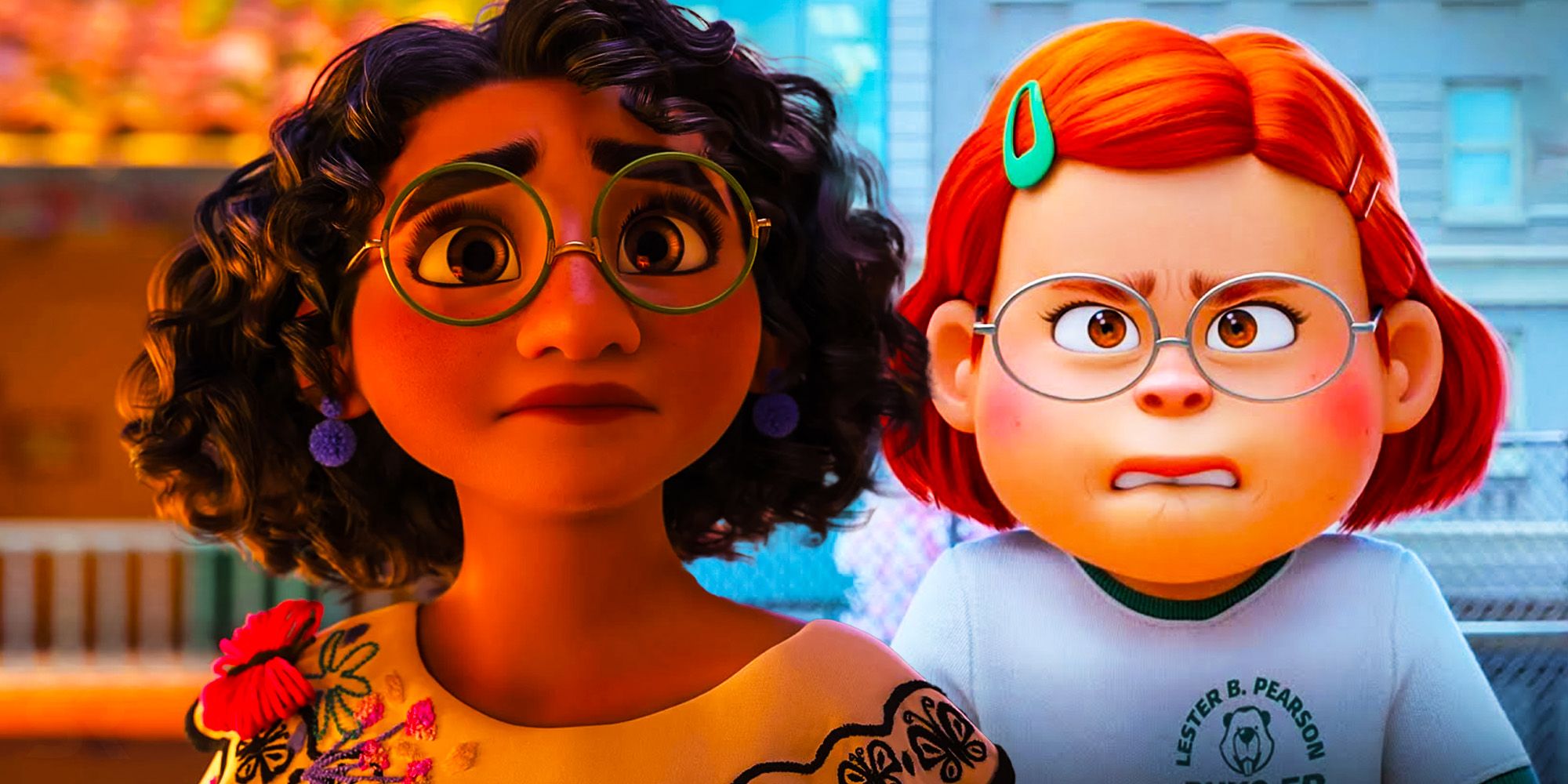Pixar’s Turning Red and Disney’s Encanto both lack one storyline staple: a villain, but there's a reason for that. Their similarities don’t end there, however. Both movies have endearingly funny and awkward teenage girls as their protagonists, and both explore their journeys of self-discovery. Because of this, the usual hero/villain dynamic was changed.
Turning Red’s Mei Lee (Rosalie Chiang) is a glasses-wearing goofball and academic champion living in Toronto’s Chinatown in 2002. Mei has to navigate commitments to her friends and family, which are complicated when she finds herself burdened with the inconvenience of turning into a red panda when the strong emotions of puberty descend upon her. While Mei initially attempts to evade her magical ability, Encanto’s Mirabel (Stephanie Beatriz) is a young Colombian woman desperate to find a magical gift, or at least a sense of purpose to help her fit in with her superhuman family.
Rather than facing villains, both teenage protagonists confront generational trauma. Turning Red’s main antagonist is Mei’s overprotective and controlling mother Ming Lee (Sandra Oh). Ming acts villainously when she sneaks into her daughter’s school to spy on her, chastises Mei’s friends, and (most dramatically) crashes a concert full of teenagers in the form of an angry red panda that is much bigger than Mei's. Yet Ming can hardly be called a villain. Though she often acts drastically, her actions throughout the movie clearly demonstrate that she is motivated by a deep concern for her daughter. The viewer learns that when Ming was a teenager, she fought with her own mother Wu (Wai Ching Ho), who disagreed with Ming’s choice to have a relationship with Mei’s dad Jin Lee (Orion Lee). This past experience makes Ming a figure of pity, especially when a teenage version of her cries on the ground during the second panda ceremony. Clearly, Ming’s overbearing desire to be involved in every aspect of her teen daughter’s life is an attempt to protect herself and Mei from repeating the anguish she experienced as her mother-daughter relationship with Wu deteriorated.
Encanto’s principal antagonist Abuela Alma (María Cecilia Botero) is not a classic villain either. Abuela appears to act harshly toward Mirabel by telling her to stay out of the way and blames her for such disasters as cracks in the house, Luisa’s powers declining, and Isabela being “out of control.” However, from Abuela’s perspective, her granddaughter Mirabel appears to be the center of chaos destroying the “perfect” life of the miraculously blessed family. The miracle is extremely important to Abuela Alma, and for good reason. One of Encanto’s most emotional scenes is a heartbreaking flashback in which her husband Pedro sacrifices himself to marauders, leaving Alma to raise her triplets alone. The only thing that protected and sheltered them was the "encanto," Abuela's miracle that gives the family its powers. It is therefore unsurprising that Alma is determined to “earn the miracle,” and sometimes prioritizes this goal above the family’s wellbeing. Like Ming, she is desperate to avoid a repetition of her traumatic past and does not realize that her ideals are taking a toll on her family.
Lack of communication within the families of Turning Red and Encanto means that Ming and Alma’s toxic and controlling strategies for avoiding heartbreak go unchallenged. Yet Mirabel’s and Mei‘s journeys of self-discovery give them the courage to finally confront the older women and to question their damaging ideals and actions. In both cases, this challenge initially creates conflict with the headstrong leaders of the families. Ming lashes out in gigantic panda form, and Abuela Alma shouts at Mirabel, causing their home to crumble around them. Thankfully, both women have the maturity and introspection to recognize their faults and make amends with the teenagers and the rest of their families. Far from villains, the antagonistic matriarchs in both Turning Red and Encanto become heroic as they process the impact that their trauma-induced actions are having on their families, and they restrain their controlling behaviors to allow the teenage protagonists room to grow and thrive.


